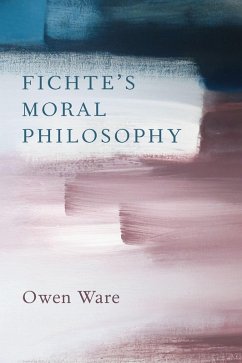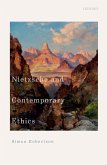Owen Ware here develops and defends a novel interpretation of Fichte's moral philosophy as an ethics of wholeness. While virtually forgotten for most of the twentieth century, Fichte's
System of Ethics (1798) is now recognized by scholars as a masterpiece in the history of post-Kantian philosophy, as well as a key text for understanding the work of later German idealist thinkers. This book provides a careful examination of the intellectual context in which Fichte's moral philosophy evolved, and of the specific arguments he offers in response to Kant and his immediate successors. A distinctive feature of this study is a focus on the foundational concepts of Fichte's ethics--freedom, morality, feeling, conscience, community--and their connection to his innovative but largely misunderstood theory of drives. By way of conclusion, the book shows that what appears to be two conflicting commitments in Fichte's ethics--a commitment to the feelings of one's conscience and a commitment to engage in open dialogue with others--are two aspects of his theory of moral perfection. The result is a sharp understanding of Fichte's
System of Ethics as offering a compelling resolution to the personal and interpersonal dimensions of moral life
Dieser Download kann aus rechtlichen Gründen nur mit Rechnungsadresse in A, B, BG, CY, CZ, D, DK, EW, E, FIN, F, GR, HR, H, IRL, I, LT, L, LR, M, NL, PL, P, R, S, SLO, SK ausgeliefert werden.









